A book to keep and scan through every now and then.
A book to keep and scan through every now and then.
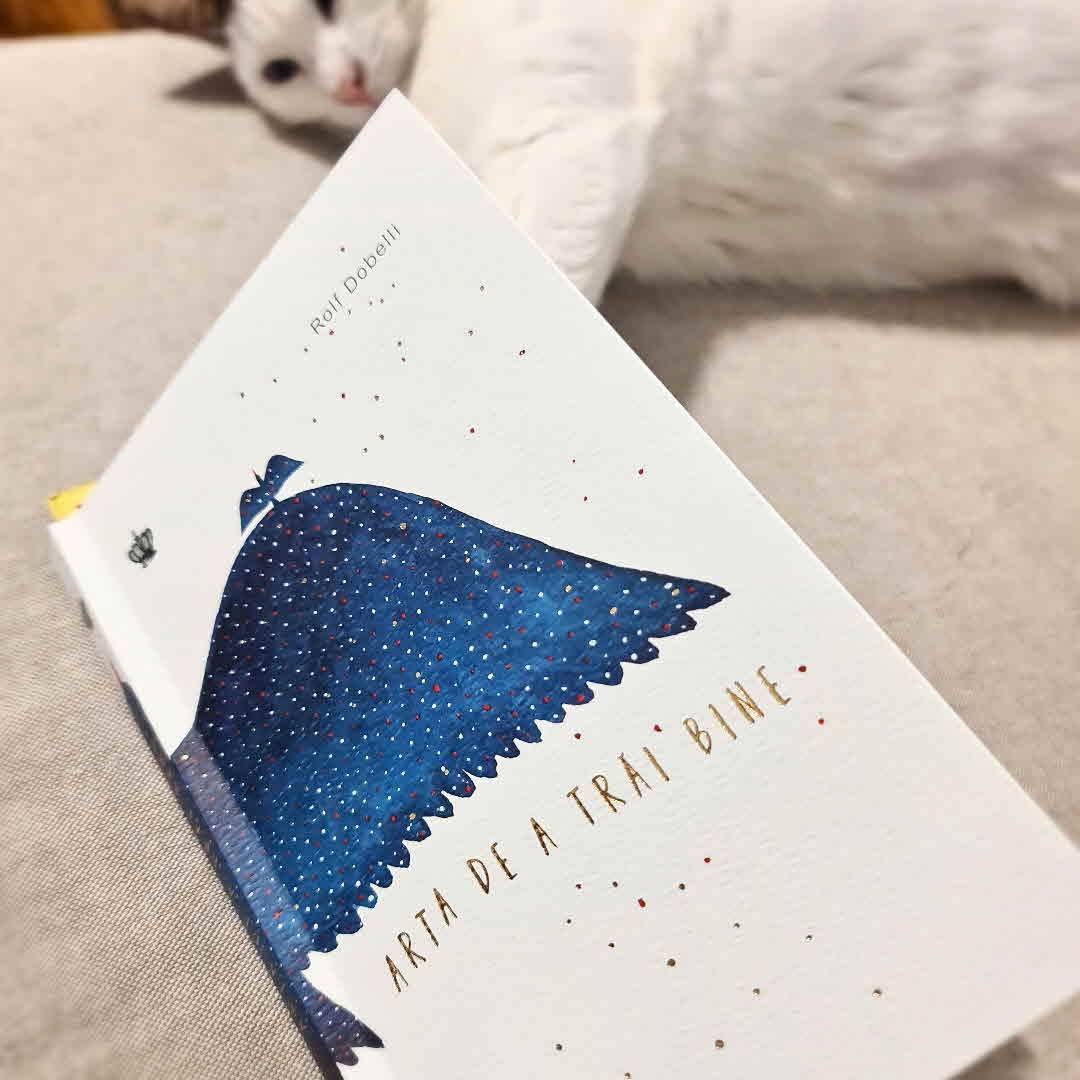
Very straightforward, honest and to the point recommendations for a good life inspired by stoicism, modern psychology, financial literature, and, most of all, by common sense.
"When young, read widely and do not restrict yourself. This is the stage where you are improving your powers of judgment. After you are 30, be very selective about what you read."
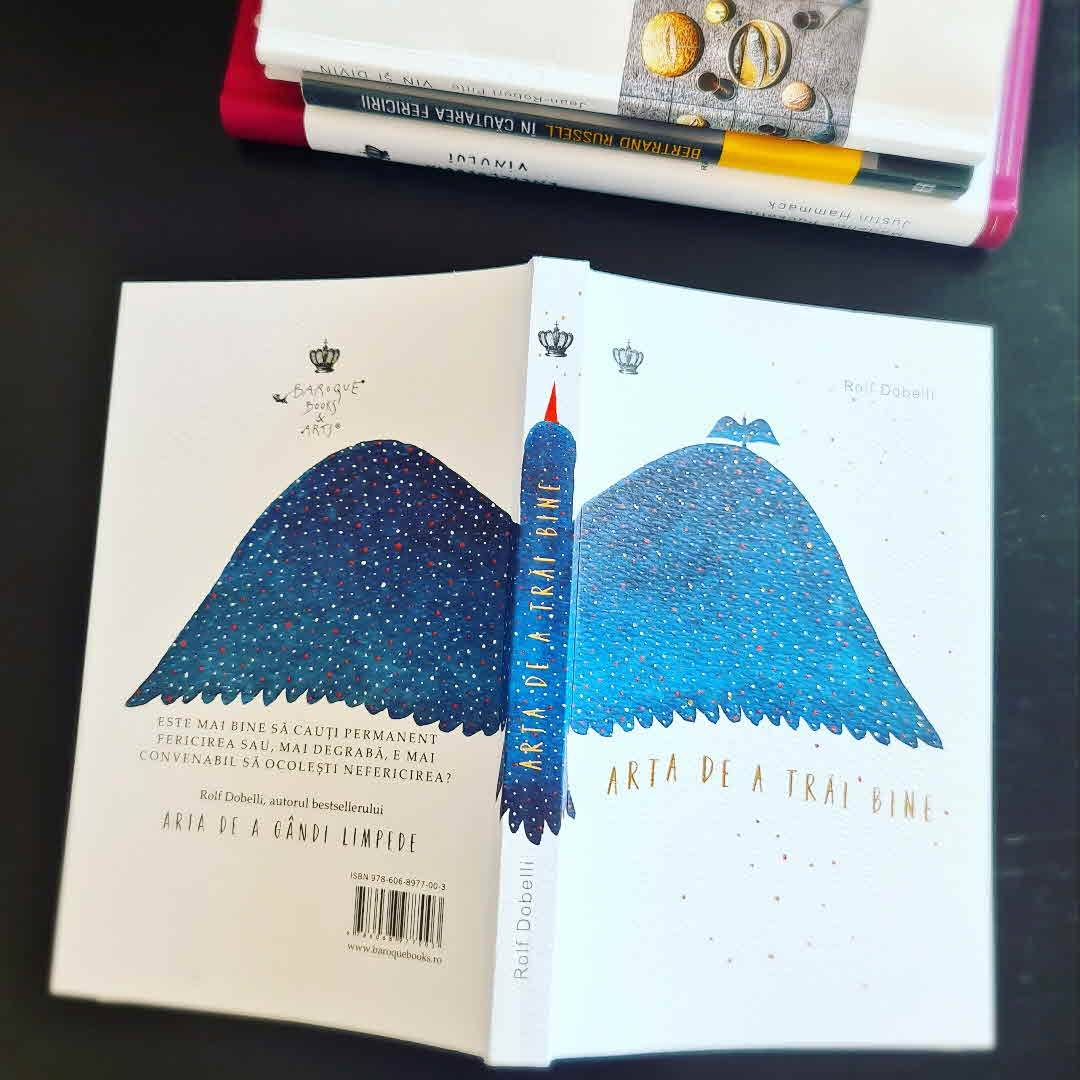
? "The most common misunderstanding I encounter is that the good life is a stable state or condition. Wrong. The good life is only achieved through constant readjustment."
? "We overestimate the impact of purchases on our wellbeing and underestimate the impact of experiences."

Rolf Dobelli gives his guidelines to living a good life. Some of them I whole heartedly agree with, and some of them I could leave behind. He writes with a sense of humor and life experience.
https://onthebl.org/2019/06/08/the-art-of-the-good-life/

I agree with 70 percent of his ideas and got some new advice that is useful. Like pay for vacations ahead of time so the last memory won't be about paying the bill. Love that idea! The other 30 percent doesn't work for me which is fine. Like his ideas on donating versus volunteering. Great food for thought though. I am interested in reading more about Stoicism that he borrowed from occasionally.

Schnell gelesen. Man erfährt wenig Erhellendes, aber das kann man bei dem Thema Glück auch nicht ernsthaft erwarten. Meistens genügt die Kapitelüberschrift, um die Essenz des jeweiligen Tipps zu erfahren. Auf den mehr als 350 Seiten wimmelt es von anekdotischem Füllmaterial, das keinen weiterbringt. Hilfreicher wäre, bekäme man Anregungen wie man manches umsetzt.
Das Buch tut nicht weh, aber man vergisst es auch schnell.

Bücher lesen, um sich das Lesen anderer Bücher sparen zu können.
Danke, Herr Dobelli. Jetzt weiß ich endlich, was im „Trost der Philosophie“ steht. Ich wollte es immer mal lesen, aber meine Ausgabe ist verschollen.
Und ja, sich mit den Stoikern zu beschäftigen, scheint mir gerade eine ziemlich gute Idee.
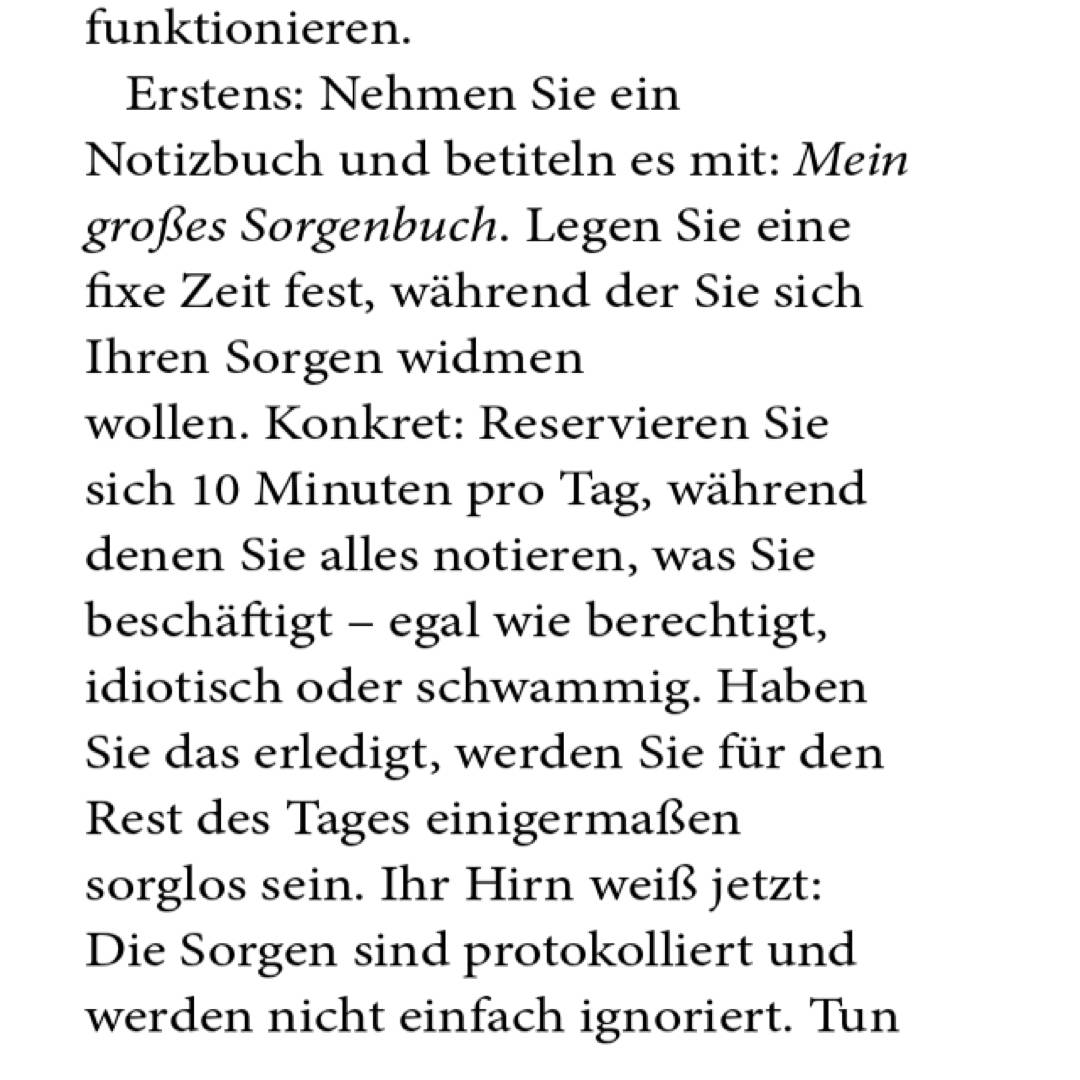
Nehmen Sie ein Notizbuch […] Legen Sie eine fixe Zeit fest, während der Sie sich Ihren Sorgen widmen wollen. […] notieren [Sie alles], was Sie beschäftigt – egal wie berechtigt, idiotisch oder schwammig. Haben Sie das erledigt, werden Sie für den Rest des Tages einigermaßen sorglos sein. Ihr Hirn weiß jetzt: die Sorgen sind protokolliert und werden nicht einfach ignoriert. (Seite 157)
⬆️⬆️⬆️ Das klingt, als sei es einen Versuch wert.
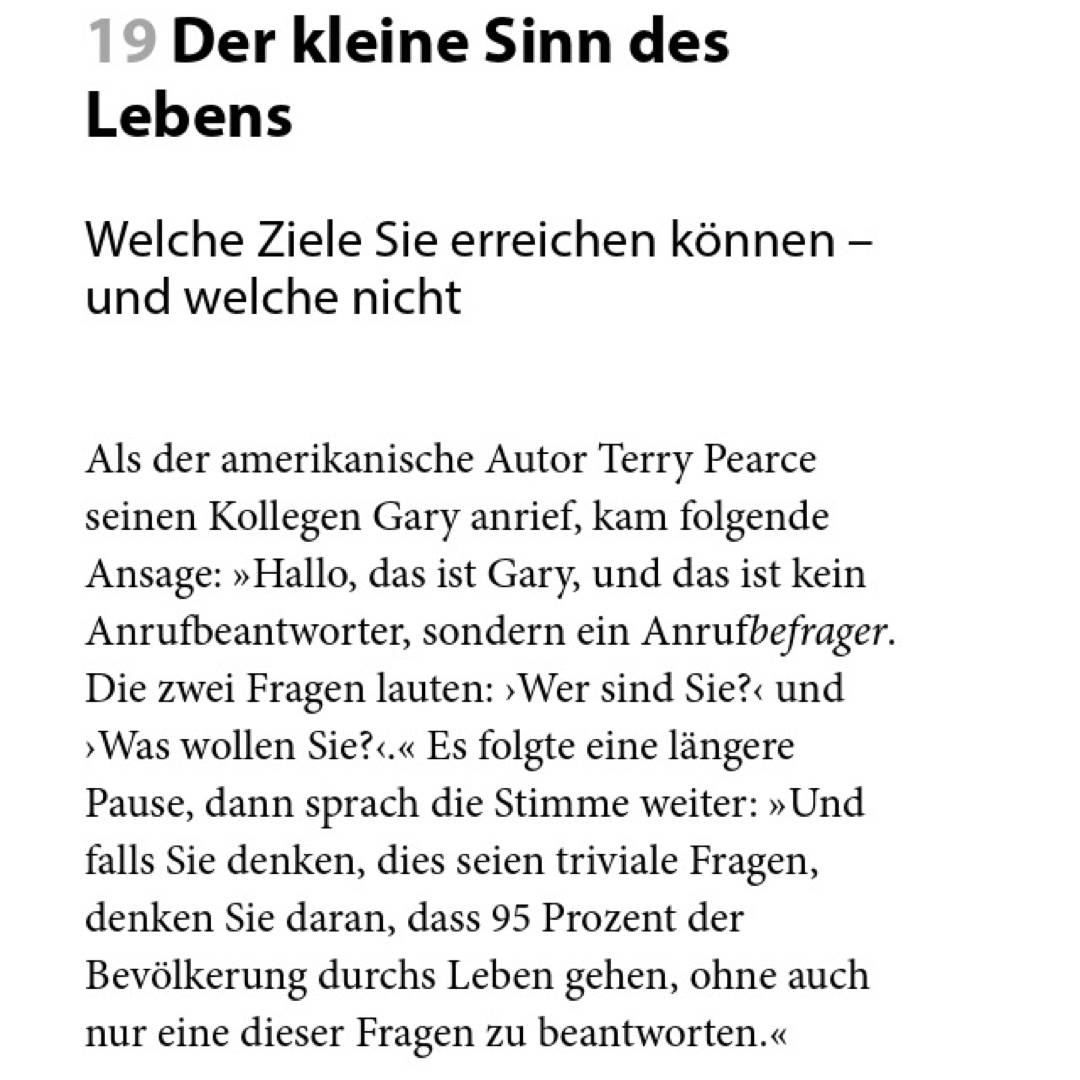
Ich will jetzt nicht direkt sagen, dass dieses Buch viel Lärm um nichts enthält, aber man kommt beim Lesen schnell voran. Meiner Meinung nach enthält es doch viel illustrierendes Füllmaterial.
Aber die Geschichte mit dem Anrufbefrager, dem Anrufbeantworter, der dem Anrufer die zwei Fragen „Wer sind Sie?“ Und „Was wollen Sie?“ stellt(Seite 102), die finde ich großartig.

Ich bin sehr gespannt.
Vielleicht finde ich den ein oder anderen Hinweis, der sich gut in meinen Alltag integrieren lässt.
Rolf Dobelli once again has written a masterpiece The art of the good life. He tells about the fifty two skills or tools which can be applied in any situation of life or in business. For details www.shaperscode.com
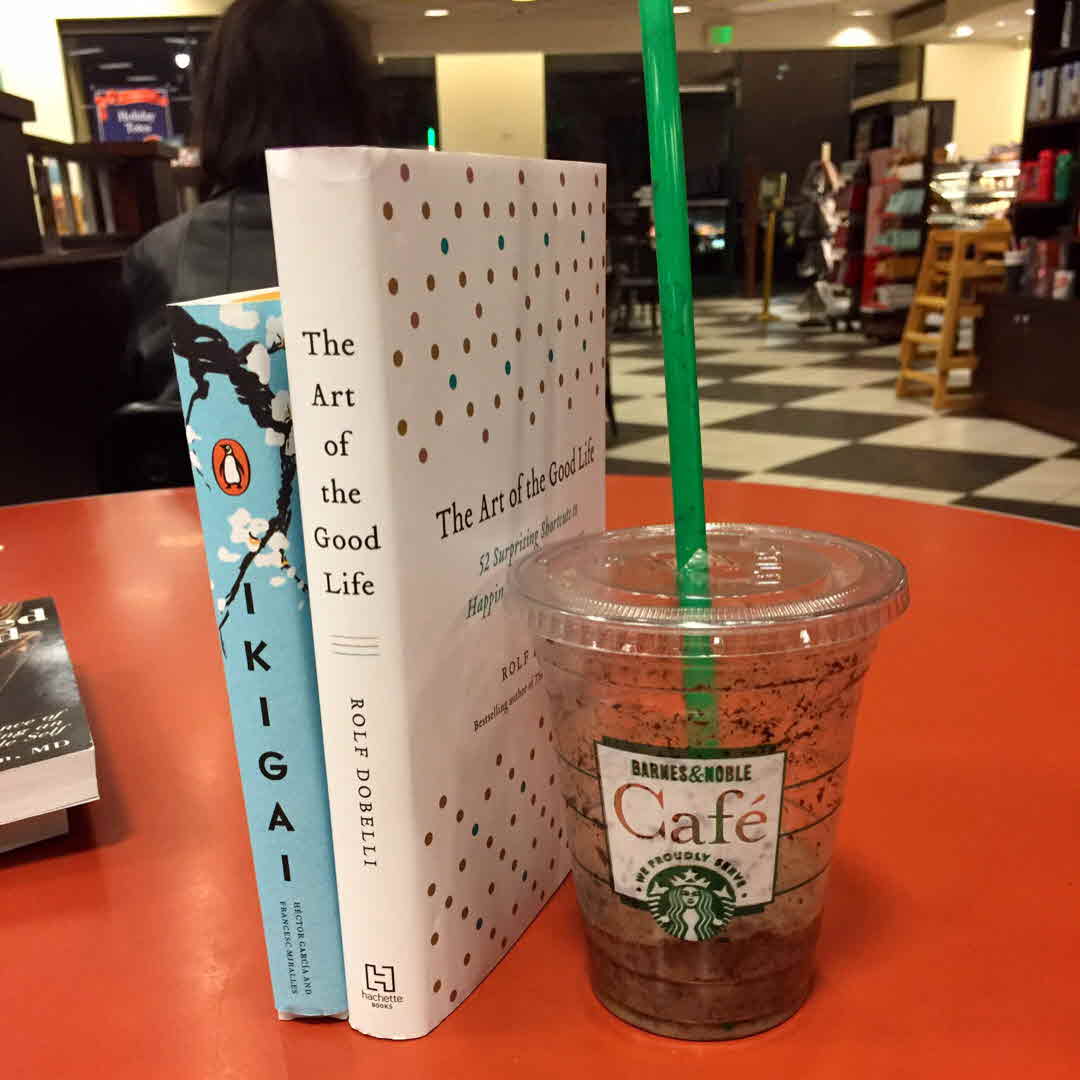
Moi at B & N! Best Bookshop! Best of both worlds!
Has anyone read about 'Ikigai', it's a very interesting concept! Something new I learned this year!
The second one is from one of my fav self help author! He's too good and I've this book on kindle!